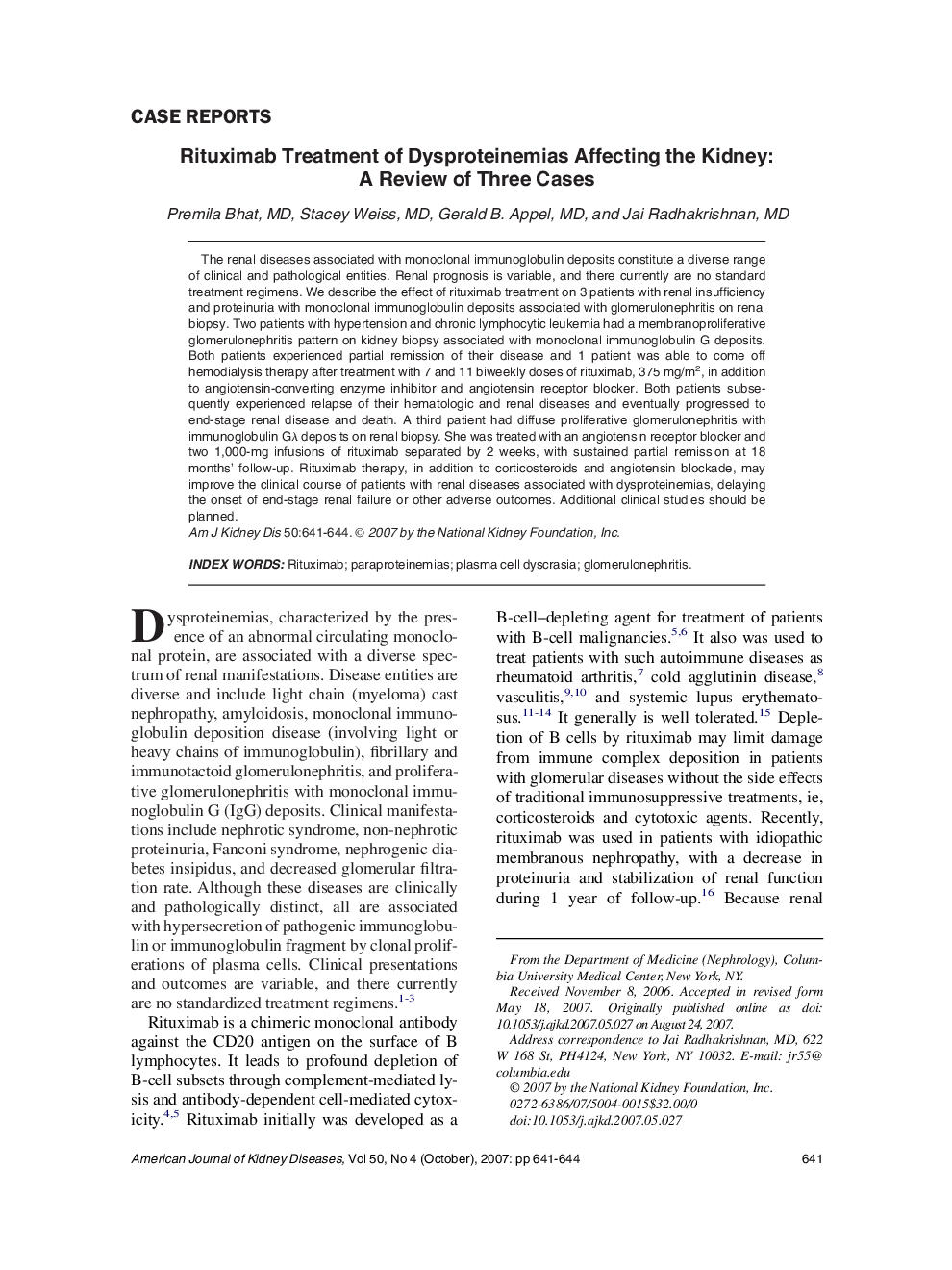| Article ID | Journal | Published Year | Pages | File Type |
|---|---|---|---|---|
| 3851928 | American Journal of Kidney Diseases | 2007 | 4 Pages |
Abstract
The renal diseases associated with monoclonal immunoglobulin deposits constitute a diverse range of clinical and pathological entities. Renal prognosis is variable, and there currently are no standard treatment regimens. We describe the effect of rituximab treatment on 3 patients with renal insufficiency and proteinuria with monoclonal immunoglobulin deposits associated with glomerulonephritis on renal biopsy. Two patients with hypertension and chronic lymphocytic leukemia had a membranoproliferative glomerulonephritis pattern on kidney biopsy associated with monoclonal immunoglobulin G deposits. Both patients experienced partial remission of their disease and 1 patient was able to come off hemodialysis therapy after treatment with 7 and 11 biweekly doses of rituximab, 375 mg/m2, in addition to angiotensin-converting enzyme inhibitor and angiotensin receptor blocker. Both patients subsequently experienced relapse of their hematologic and renal diseases and eventually progressed to end-stage renal disease and death. A third patient had diffuse proliferative glomerulonephritis with immunoglobulin Gλ deposits on renal biopsy. She was treated with an angiotensin receptor blocker and two 1,000-mg infusions of rituximab separated by 2 weeks, with sustained partial remission at 18 months' follow-up. Rituximab therapy, in addition to corticosteroids and angiotensin blockade, may improve the clinical course of patients with renal diseases associated with dysproteinemias, delaying the onset of end-stage renal failure or other adverse outcomes. Additional clinical studies should be planned.
Related Topics
Health Sciences
Medicine and Dentistry
Nephrology
Authors
Premila MD, Stacey MD, Gerald B. MD, Jai MD,
